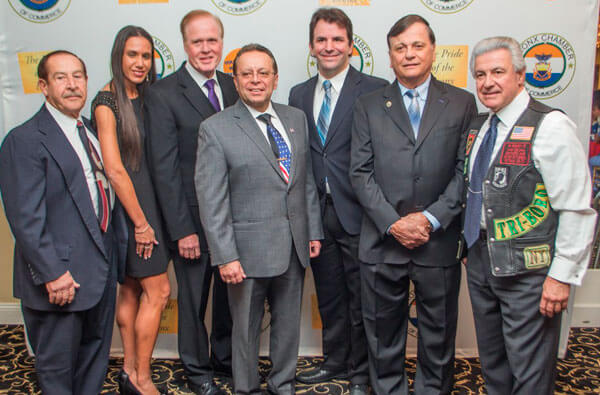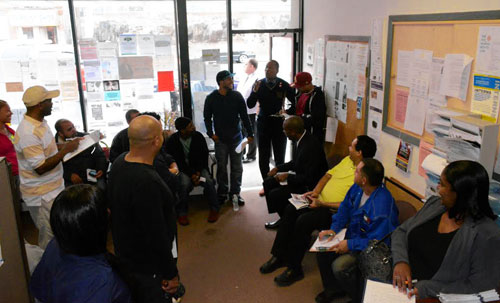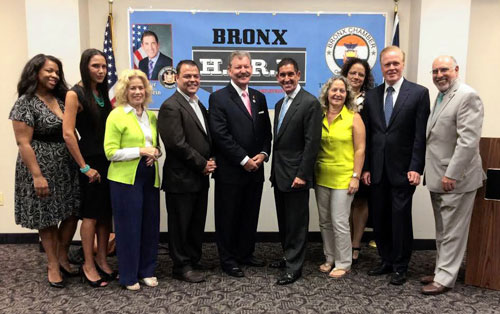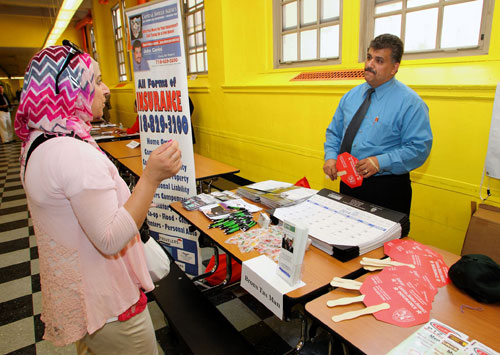The Center for Employment Opportunities and Councilmember Kevin Riley will host a job and resource fair on Friday, April 22 for people who have been incarcerated or convicted of criminal offenses.
The event, which will take place from 12 p.m. to 4 p.m. at the Northeast YMCA at 1250 E. 229th St. in the Bronx, is intended to highlight opportunities for people with criminal records, but it is open to the public.
New York Life, Citarella, TJ Maxx and the New York State Department of Labor are among about 30 employers participating. There will also be about a dozen service providers offering resources such as free haircuts, clothing, vaccines and information from the comptroller’s Office.
Riley’s office is expecting about 200 people to attend.
“After adversities faced due to the COVID-19 pandemic, all stakeholders must come together to rebuild our communities,” Riley said in a statement. “Part of that rehabilitation includes creating equal employment opportunities that allows businesses to maintain successful operations while supplying community members with favorable means to take care of their families.”
According to a Bureau of Justice Statistics (BSJ) study, out of 51,500 people released from federal prison in 2010, 33% were not hired within four years and no more than 40% were employed during the same time frame at any given point. Yet a report from the Charles Koch Foundation and the Society for Human Resource Management found more than 80% of surveyed HR professionals and business leaders believe employees with criminal records either perform the same or better than those without them.
The Bronx had the highest unemployment rate out of any county in the state at 9.3% in February and 8.6% in March.
And advocates say it’s much worse for those who have been behind bars. Using data from the BSJ study, the Prison Policy Initiative estimated a 60% rate of joblessness for formerly incarcerated people in the U.S. The non-profit organization said it cannot calculate an unemployment rate — which differentiates from joblessness because it requires actively looking for employment — because the government has not released the necessary data. But in 2018, the organization determined a 27% unemployment rate for formerly incarcerated people in the country.
In New York, Article 23-A has various factors for employers to take into account when hiring someone with a criminal record, such as the duties of the job, time since the conviction, the age of the applicant at the time of the offense, the seriousness of the offense and participation in a workforce development or counseling program, but employers cannot reject applicants based on the fact they have previously been convicted of a crime unless there is a direct relationship between the crime and job being sought or that the employment would involve an “unreasonable risk to property or to the safety or welfare of specific individuals or the general public.”
The Center for Employment Opportunities (CEO), one of the event hosts, helps connect formerly incarcerated people connect with job opportunities and provides training.
“When you have a conviction on your record, your sentence does not end when you leave prison,” Cynthia Brackett, CEO regional director for New York City, said in an interview with the Bronx Times.
After job candidates interview for a job and receive a conditional offer of employment, the background check comes into play, and some people struggle to speak about their convictions and sell themselves in an interview, she said. Additionally, being on parole comes with requirements like mandated programs or curfews that people have to coordinate with while seeking a new job, not to mention concerns surrounding housing, food and childcare. CEO helps people navigate these barriers.
“It’s about how do we have opportunities in which individuals feel that they have a real chance of getting hired,” Brackett said.
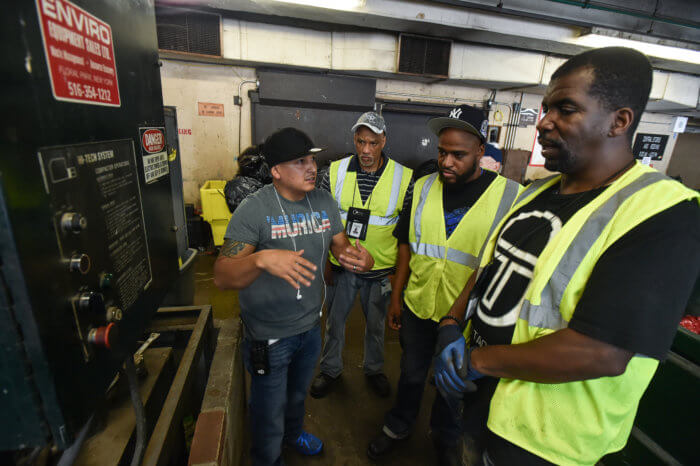
CEO has a transitional job program in which the organization recruits and hires formerly incarcerated people to work for partners like NYCHA, courthouses and city council members with a site supervisor that gives regular feedback, paying and training participants to prepare them for job placement.
While the employers at Friday’s job fair are not part of the CEO program, they are trying to fill vacancies while considering CEO participants and the community at large as potential hires.
Reach Aliya Schneider at aschneider@schnepsmedia.com or (718) 260-4597. For more coverage, follow us on Twitter, Facebook and Instagram @bronxtimes.


